It’s been over a decade since non-profit program The Remix Project first opened its doors in downtown Toronto with the hope to “level the playing field” for marginalized youth pursuing careers in creative industries. Over the years, the program has offered a range of programs from business management and graphic design to music production and its organizers have worked diligently to push every boundary to provide its students with equipment, access to industry professionals and education. Gavin Sheppard, director of alumni relations and co-founder of The Remix Project, says that the greatest thing he, his founding partners Derek “Drex” Jancar, Kehinde Bah and their team ever did was create a safe space where youth could collaborate.
“Young creative people needed to meet other creative people who needed to meet other creative people. That’s the magic,” says Sheppard.
The idea originally stemmed from the Inner City Visions initiative in the early 2000s that worked to minimize gang violence and develop youth. The program was propelled forward in the wake of Toronto’s “summer of the gun” in 2005, when the city saw a devastating rise in gun-related violence.
The founding team wanted to “remix” the way youth saw education by developing an interactive method of teaching, that not only helped set up young people for a future in their desired field, but also considered the daily circumstances that may affect a student’s ability to learn in a conventional education system.
The results that followed were unbelievable. A myriad of youth, who in many instances entered Remix with a vague understanding of the industry, are now making tidal waves in the development of Toronto’s bustling creative infrastructure and helping propel Canada onto a global stage. Alumni range from Fresh, owner of Get Fresh located on Queen Street West in Toronto to singer Jessie Reyez, who is currently on tour in Europe promoting her Kiddo EP, and Adiel “Addy” Papa who manages both producer WondaGurl and recording artist/producer Rich Kidd, and now sits on the board of directors for The Remix Project. It was Rich Kidd who first introduced him to Remix Project in 2006.
“This is after dropping out of college and university like three times and [from] two different schools so it came at an interesting point in my life,” recalls Papa.
“[…] I am a practical learner so I’m not good in a classroom environment. I learn from being hands-on and experiencing things through trial and error. That’s what I discovered with Remix.”
Papa says that to this day he still attributes the foundation of his network within the creative industry to the youth program.
“It’s amazing to see [years later] a lot of things come to fruition for a lot of my friends and colleagues in the industry and just to see how important it was and how necessary it was for a lot of people to help push their careers and inspire. A lot of everything for a lot of people around me wouldn’t be possible without Remix.”
“A lot of everything for a lot of people around me wouldn’t be possible without Remix.”
There are loads of other success stories within The Remix Project archive. Beyond the alumni, there are also its outstanding outreach initiatives including helping launch a recording studio in Rio in 2008 and the unveiling of The Remix Project Chicago that officially introduced its first class in 2015. At the tail end of 2017 the city of Toronto announced that it would commit $200,000 toward expanding the program in its new home at The Daniel’s Waterfront set to open sometime this year. Efforts are still underway to fundraise for the space.
In conversation with Gavin Sheppard he speaks, with the utmost devotion, about the thought process behind Remix’s teaching methods, where he thinks the standard education system may be lacking and how co-curating The Remix Project continues to challenge him every day.
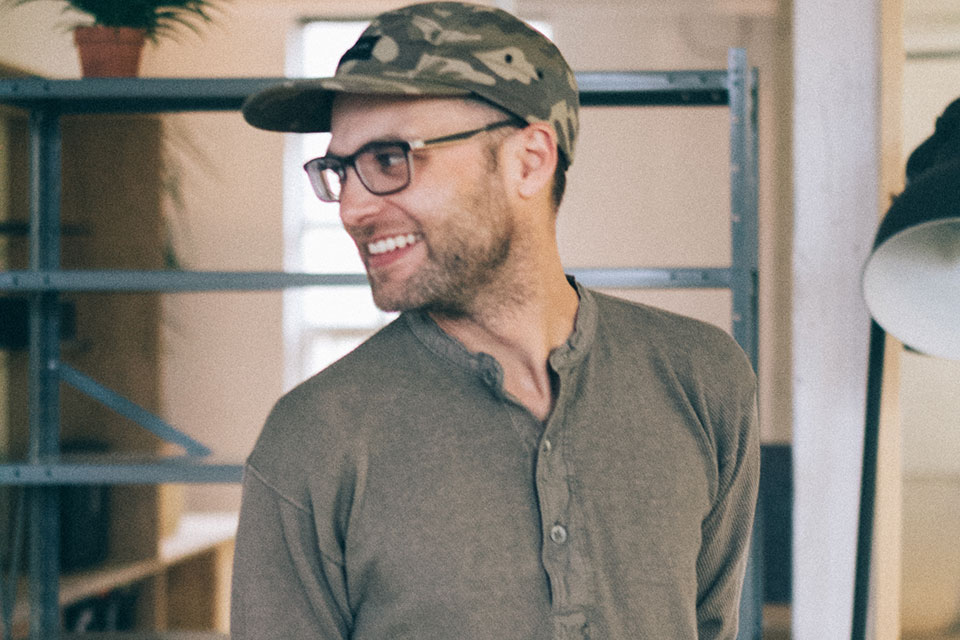
What were the beginning stages like at The Remix Project?
It was a lot of fun, but every single day was a learning experience because we’ve never been there before. We are definitely people who’ve learned through trial and error our whole lives in a lot of ways. We try to listen to our elders; we try to get the wisdom and what not. At the same time it was a very kind of raw experience. I was 22 when we started Remix. I was the same age as the participants. Even people in round two or three, they were my peers as much as they are alumni. That was a very interesting thing as well where I think it was very powerful that young people were empowered and put in spaces and what came out of it was really exciting.
The problem was never talent in this country; the talent has always been here in the city, that’s our belief. What lacks is the infrastructure. How do we actually get that talent out to the world? OK, we’re going to start a business program and hopefully in like four to six years we’re going to help create the infrastructure that we’ve been lacking. It was really a long-term vision where we knew that you’re not going to graduate this program in nine months and then turn around and be entrepreneur of the year and then have this empire within two years. But four, five years down the line it’s going to be interesting. Six, seven years down the line it’s going to be interesting. Like where are you at? It’s been cool to start to look around and be like cool Get Fresh Company has a storefront. When I met him (Fresh) he was selling jerseys. Then he got into styling then this and that. Now he’s got a partnership with Mitchell & Ness […]. That sh*t’s crazy to me.
How do you guys keep up with the needs of the new generation?
Listen. Not only listen, but hire and empower. That’s the difference. Not a lot of people listen, most people wait for their turn to speak. We really try to listen and we try to have ways where people could plug in. Back in the day we used to hire a youth leader for one semester. We’d say no matter what and no matter how good a job you do we’re not going to rehire you. One, because it’s about getting experience and then hopefully they go out into the world and break that cycle of can’t get experience without a job and can’t get a job without experience.
The other side of it was if you find a hole and a gap in what we’re doing in your semester, then let’s talk about it, let’s identify it. If we can build out a position we can apply for grants together. We’ll support you, let’s fill that hole.
That’s how our photography program started, it was Photo Will (Will Nguyen) that was in our creative arts program and he was like, “Look, we get so many people applying just for photography we should have our own program now.” I was like OK, well you’re our youth leader you have a few more months, how does that work? We sat down and he went away with a plan, came back, built it out. We sat down together, started editing, fleshing it out and then launched the photography program. It’s making sure that the ideas don’t just come from ‘leadership,’ but leadership actually comes from participants as well.
It’s a team effort.
Right, but really understanding that.
It comes from our young people. Tell us what we need to do, how do we work with you better? We’re not going to spoon feed the results to you. If we’re not getting through then there’s a problem and that problem is our teaching.
Teachers or our formal education system will say, ‘that student’s a problem child.’ Sure, but maybe you’re obviously not getting through to them so there’s a problem both ways. Maybe it’s not your fault per se, but it’s not their fault per se either if they’re wired a little bit differently or that they understand the world in a different way. You just haven’t communicated properly here.
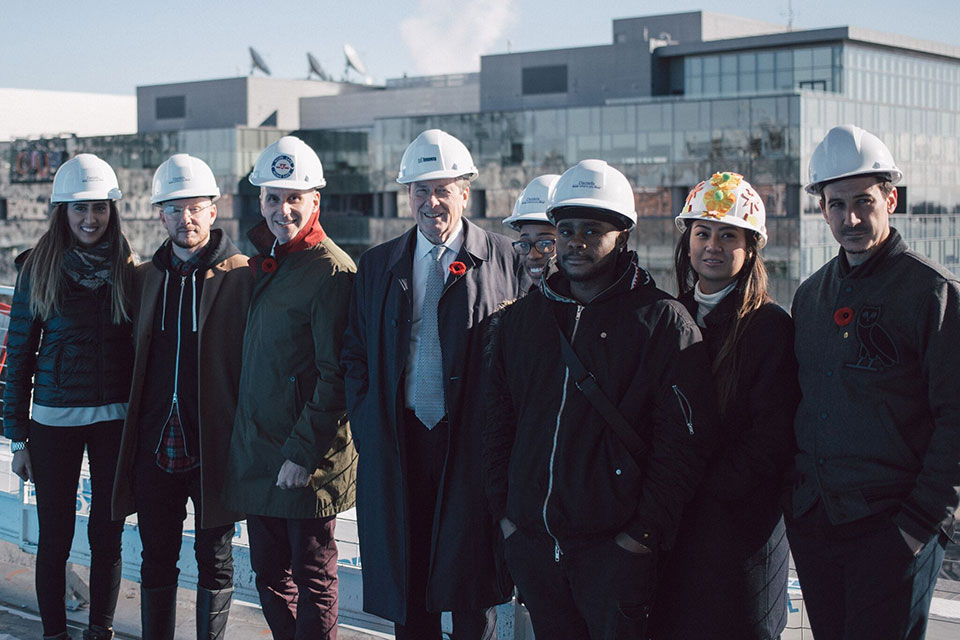
How do you feel the education system in Canada can improve to better engage young people?
It’s hard because I think there are teachers who are already doing absolutely incredible work and then there are teachers that aren’t. For me, I wouldn’t want to say here’s the way to engage young people because I just finished saying young people become engaged in so many different ways.
What I do believe though, I believe in a lot more training for our teachers, I believe in the evaluations of our teachers, but not just evaluations in terms of, ‘Did your students have high marks or not?’ but psychological evaluations. I think that’s really important. I think that a lot of really, really good people go through burn out for a myriad of different reasons that aren’t their fault, but they’re still in that job for a long time. That affects the education of the young person, which affects the way that they see education and if they see themselves within it or not. All these massive kind of echoes that can happen in a young person’s life because this individual was just burnt out that year and maybe needed a year off. How do we protect our teachers too from that burn-out? […] We’re raising children. This has to be one of the most important things that we do and it’s just not understood that way…
“You can’t concentrate on being the best graphic designer if you’re getting the sh*t kicked out of you every night or you don’t know where you’re going to sleep or whatever it is.”
The school I went to we had courses like careers and civics that teach you a little bit about business and how to handle your money, but you only take it for one year and only for half a semester each. Then you go out into the world and you still don’t know how to handle your own money.
It’s crazy. Who teaches you about credit? That’s a mandatory workshop at Remix. We do workshops on branding, we do digital distribution, we do all the cool sh*t. We bring in artists or whatever, but you have to go to the one on financial literacy because, especially as a creative, you’re probably going to live off credit for years. It’s a sad reality.
So, understand how you operate within it because our formal education system just doesn’t prepare you for it and unfortunately it isn’t passed down in many of our homes. How do we break those cycles? We’re really driven to develop a 360-degree approach to personal development because we understand that personal development is what’s going to lead to professional success. We advertise the fact that we are an incubator to music and sports and business and all these things, the reality is that behind the scenes the reality 50 per cent of what we do is life development. You can’t concentrate on being the best graphic designer if you’re getting the sh*t kicked out of you every night or you don’t know where you’re going to sleep or whatever it is. Whether it’s housing, furniture banks and helping people get set up on their own two feet, whether it’s going through court and supporting people though their charges that they’re facing, writing letters, showing up — that’s a real reality of what we’re doing. Again, we recognize that the starting line isn’t equal. We believe in meritocracy, meaning you need to earn it on your merit. That’s what rises to the top. I don’t believe that everyone is created equal and all that sh*t. Not at all, but what I believe in is that our starting lines aren’t even. How do we create a more equal starting line and then let people make or not make whatever they want to of themselves.
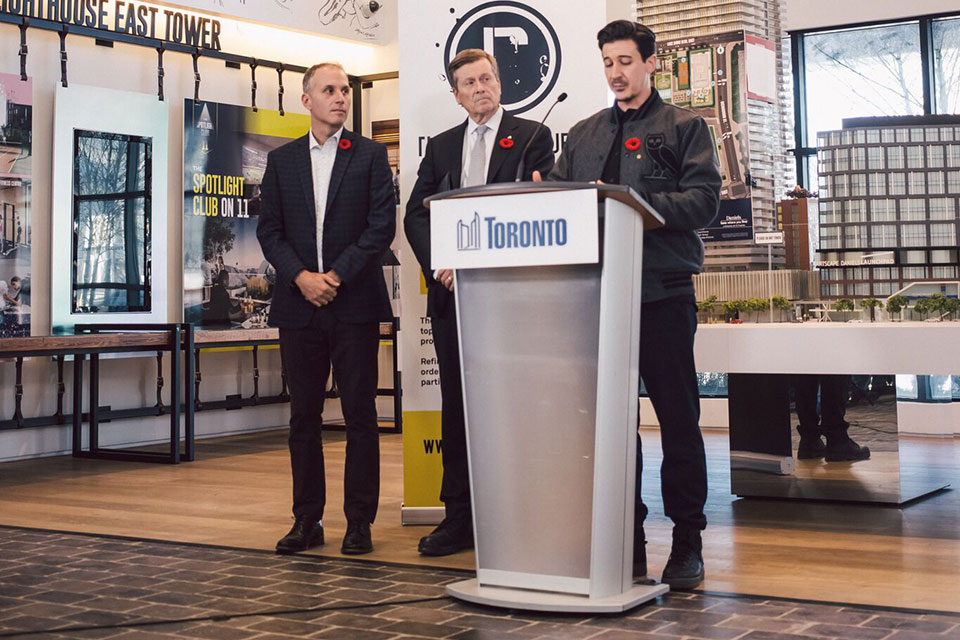
So you are giving them the tools so that they’re able to deal with those situations?
That’s the hope. To think that you’re going to teach someone how to be a success in the music industry when none of us know what the music industry is going to look like in five years is a lie. Going into specifics, the places that I know that are charging thousands and thousands of dollars to go to school for music business when again none of us really know where it’s going . . . the only thing we know is that it’s changing rapidly. You could learn about it historically and there are building blocks for how we’re going to move forward, but most of this sh*t is going out the window. The most important thing we can teach people is how to learn. That’s literally it and then how to work together. That’s my belief because we’re stronger as a whole. I say it all the time. We say, ‘Get Money, Make Change,’ as a slogan because you tell someone stop selling drugs they say, ‘f*ck you, pay my rent.’ You say ‘Get money, make change,’ that’s an entry point. What we follow it up with is community over everything. We know that whether you’re looking for a record deal or looking for a sandwich, you go to who you know first.
Again, I don’t think our current education system is set up to help all people flourish that way, but I would say that it is set up for a lot of people to win. A lot of people do fine. How can you possibly cater to 500,000 people when we’re all individuals? Any system trying to cater to that many people is going to have cracks in the system.
“There are moments where people are sharing, ‘Yo, I was really on my face before I came here. People used to call me only to get f*cked up, now they call me to make art.’ Those little moments are where you think, wow that’s really powerful.”
Exactly, because many people will say that school is not for them, but it’s not that school isn’t for them, it’s that the structure of the system has flaws.
I think why we’ve been fairly effective over the years is the relationships that the staff bring to the table are current ones.
A lot of it is just chess and relationships and strategies. We need our staff to be relevant in the industries. They have to have other jobs, their own career and their own passions because it keeps their information fresh. Even down to street sh*t like what neighbourhood can be in the room with what neighbourhood right now. There are rounds where it’s literally part of our discussions. […] We need staff that are connected to these realities and understand these realities that make sure that our young people are always safe and that they’re going to them to figure out how to navigate whatever challenges that they are navigating.
Can you describe one of your most memorable moments working with The Remix Project?
I think our success workshops, to be honest, almost every year. Every year we do a success workshop where we break down the definition of success and we have young people create their own definition. We go away to three different groups and we mix up the academies so it’s not people you’ve grown with for the last little bit. They really challenge each other, they come back and the young people share that definition of success. What’s powerful is that right after that we go around the room and we challenge each person to recognize their last nine months as a success because they’re still standing here. What did you learn? What was successful? Hearing the stories of the relationships that people have built, of the friendships that people have built, of where they were at in terms of their emotional state. Inevitably two or three people cry and it’s not the people you expect, it’s just a beautiful moment. It makes you realize that this is why we do this. There are moments where people are sharing, ‘Yo, I was really on my face before I came here. People used to call me only to get f*cked up, now they call me to make art.’ Those little moments are where you think, wow that’s really powerful.
How has The Remix Project changed you?
It has helped grow me; it’s raised me. I think it’s changed me in the sense that I’ve had to learn how to take responsibility not just for myself, but for the livelihood of a team, because you’re not just making decisions that affect a lot of people and those decisions are affecting them on a day-to-day level, and could also be affecting their rent. That humbles you and puts you in a different space.
I think I’m constantly challenged by working in communities of colour and being the white man and trying to recognize, again, my space and how I operate with my privilege without usurping or colonizing. I continue to keep an open mind and continue to be challenged and therefore engaged and excited. That’s what makes me excited is to be challenged.
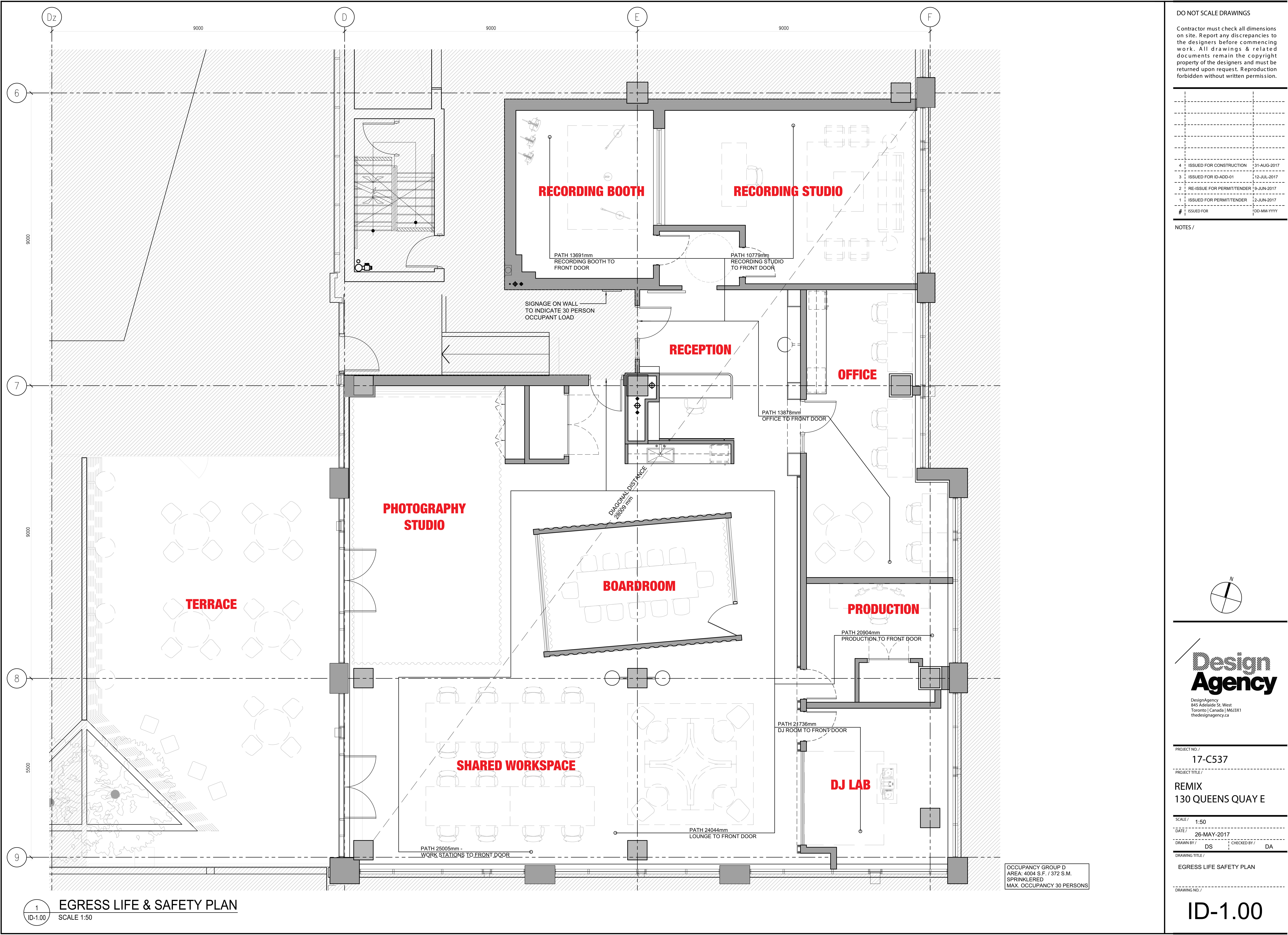

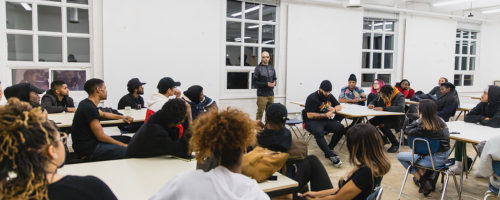


Comments are closed.